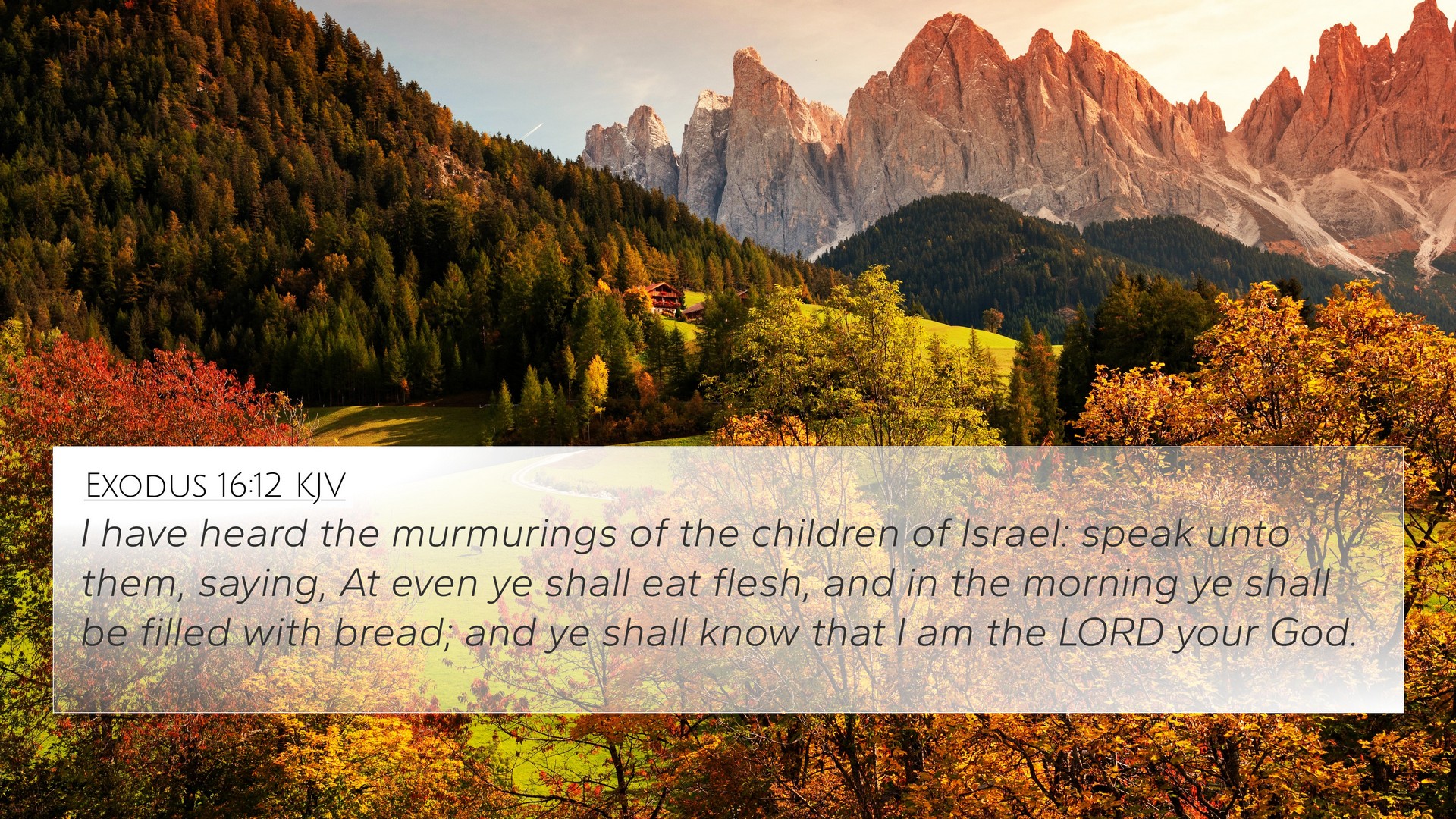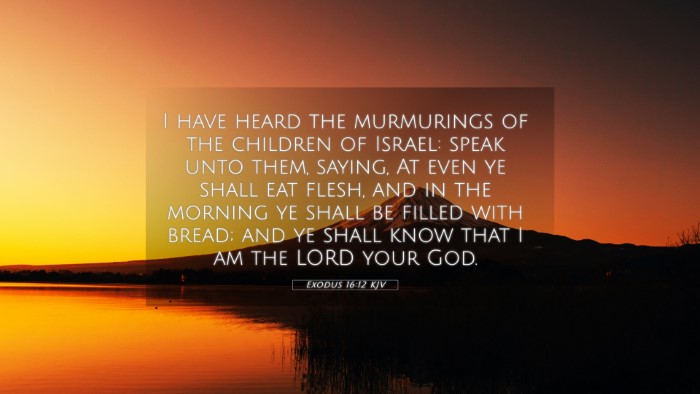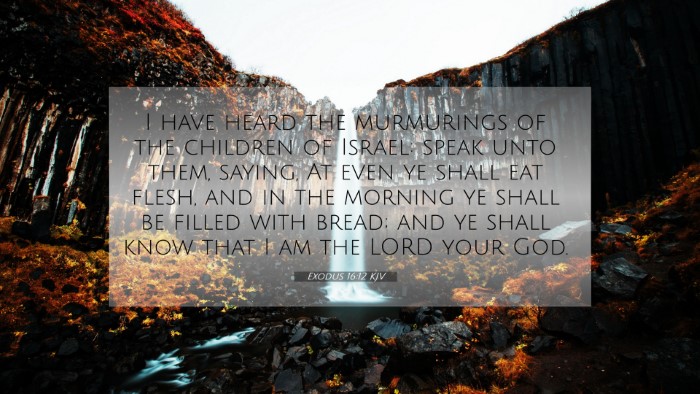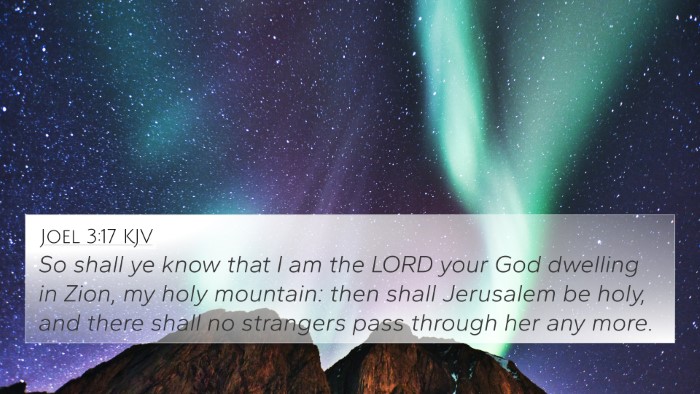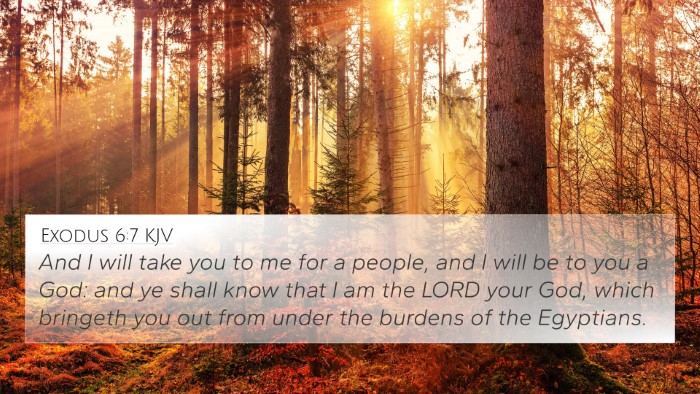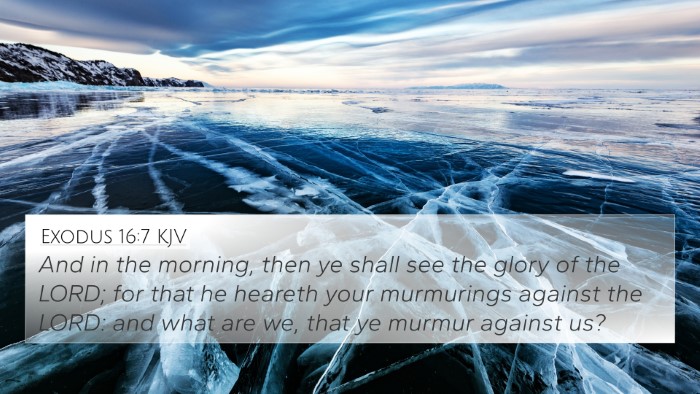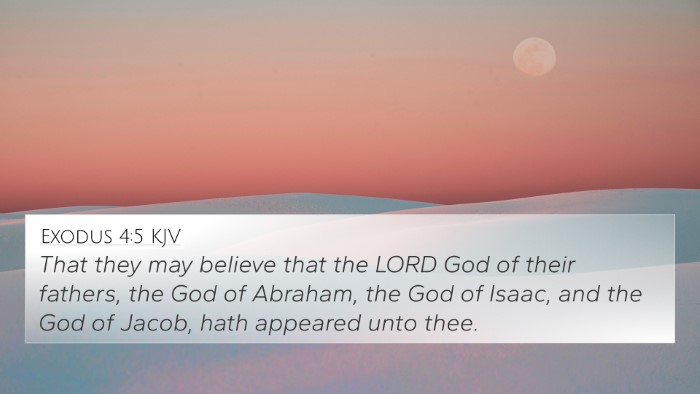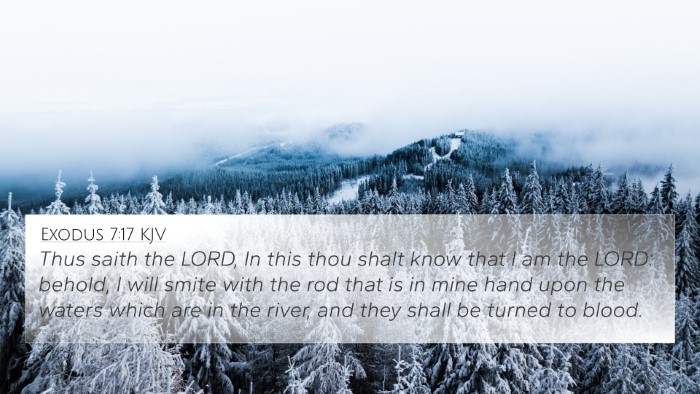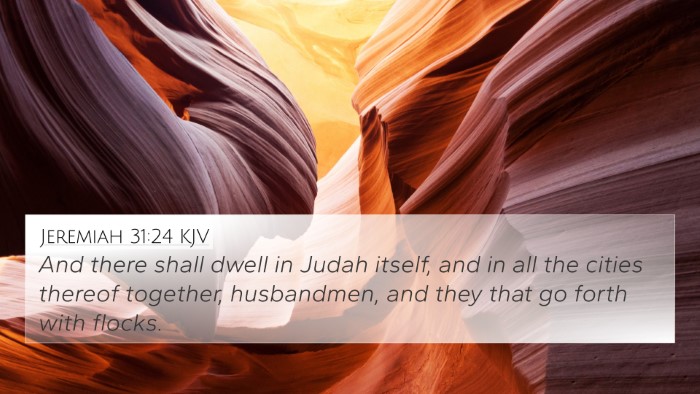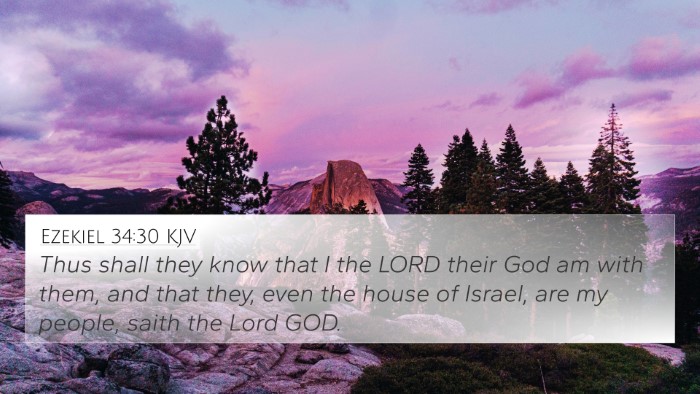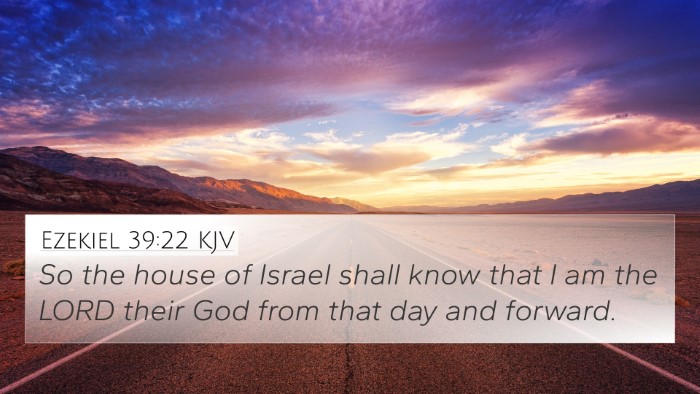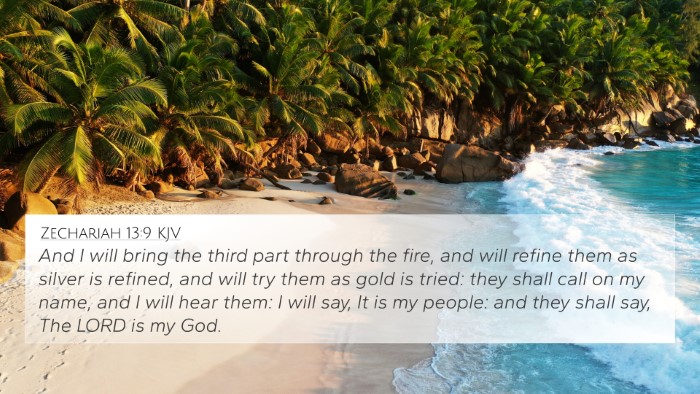Exodus 16:12 - Understanding the Provision of God
Exodus 16:12 states: "I have heard the grumbling of the Israelites. Tell them, 'At twilight you will eat meat, and in the morning you will be filled with bread. Then you will know that I am the LORD your God.'" This verse captures the moment when God promises to provide sustenance to the Israelites during their wanderings in the desert. Below, we explore its meaning through insights from public domain commentaries, revealing its rich theological implications and connections to other scripture.
Meaning and Insights
The provision of quail in the evening and manna in the morning is symbolic of God's providence. The Israelites' complaints, portrayed as grumbling, serve as an indicator of their human frailty and lack of faith amidst adversity.
- Divine Response to Complaints: This verse highlights God's willingness to respond to human needs even when the complaints stem from disbelief. As Matthew Henry points out, God's answer not only meets their physical needs but also serves to reaffirm His sovereignty and care over His people.
- Understanding Human Grumbling: Adam Clarke elaborates that the Israelites' murmuring reflects a common human tendency to forget God's past provisions. Their lack of foresight is a challenge to their spiritual maturity and a call for trust in God's ongoing care.
Theological Themes
Exodus 16:12 resonates with several overarching themes in Scripture:
- Faith and Trust: The promise of food signifies that faith is built on recognizing God's provisions in times of need.
- Divine Encounter: The phrase “Then you will know that I am the LORD your God” suggests that divine encounters often follow periods of doubt and need.
- The Role of Obedience: Receiving the promise involves obedience from the Israelites. They are to gather the manna as instructed, which showcases the theme of following divine commandments.
Cross-References
In understanding Exodus 16:12, we can identify numerous Bible verse cross-references that underline its message:
- Exodus 3:14 – "God said to Moses, 'I AM WHO I AM.'" This reveals God's self-identification as the source of existence and provision.
- Exodus 12:38 – The mixed multitude that left Egypt demonstrates the diversity within God’s plan for deliverance.
- Psalm 78:18-19 – The psalmist notes that the Israelites doubted God's provision, resembling their doubts in the wilderness.
- Matthew 6:11 – "Give us today our daily bread," resonating with the dependence on God for daily sustenance.
- Philippians 4:19 – "And my God will meet all your needs according to the riches of his glory in Christ Jesus," reinforcing God's promise of provision.
- John 6:32-35 – Jesus identifies Himself as the Bread of Life, echoing the provision theme found in Exodus.
- Hebrews 11:6 – "And without faith, it is impossible to please God." The foundation of trust connects the Israelites’ journey to maintaining faith.
Comparative Bible Verse Analysis
In performing a comparative study of Exodus 16:12 with other passages, we can see how this narrative fits into the larger biblical story:
- Linking New Testament Teachings: In the Gospels, Jesus often references manna when discussing spiritual nourishment, illustrating continuity in biblical themes and recognition of God's providential care.
- Old Testament Prophecies: Connecting to prophets like Isaiah, who speak of God’s provision and sustenance, further highlights the theme across both Testaments.
Inter-Biblical Dialogue
The dialogue established between Exodus and other books shapes our understanding of God’s character and His interactions with humanity. Notably:
- Exemplifying God's Patience: Just as God provided for the Israelites despite their complaints, He continues to offer grace to humanity today.
- Calls for Community and Dependence: This episode emphasizes reliance on one another and collective faith in God's promises.
Tools for Studying Exodus 16:12
For deeper understanding and analysis, using various Bible reference resources, including:
- Bible concordances to find related verses.
- Cross-reference guides to trace interconnections.
- Bible chain references that illustrate thematic development through the scriptures.
Conclusion
Exodus 16:12 serves as a profound reminder of God's provision in times of trouble. By linking this verse with others through cross-referencing, we further appreciate the biblical narrative's richness and intricacies. The overarching themes of trust, obedience, and God's enduring presence are foundational, encouraging believers to deepen their faith and understanding of divine providence.
